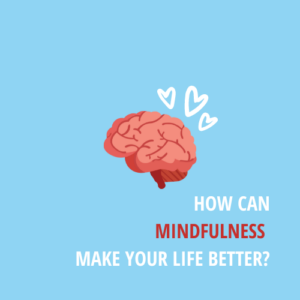Are you living in a fog? Let’s find out. Some questions for you:
- How did the clouds look this morning? Can you describe them?
- Where is the moon at in its cycle?
- Did you notice the smiling wrinkles around the eyes of the last person you spoke to?
- Thinking about greenery around you, have you noticed the intricate pattern on the leaves?
- Did you stop and taste the individual flavours and textures of your last meal? Could you describe them?
- The smell of the soap you use: how does it come to you in the heat of your shower?
- The last time your loved one smiled at you and hugged you, did you take it in, absorb that moment?
Most of us live in a fog.
We can use mindfulness not only to increase our awareness of our problem areas, but through awareness of our thoughts, emotions, and behaviour, we can also turn our attention to mindfulness to enable us to enjoy our lives, moment to moment. Let’s not be distracted by thinking of the past or future. Not attending to the now is like going to the movies with your eyes closed and your ears muffled; you would not enjoy or have a clue about what was going on in the movie.
Think of the movie as your life, scene by scene, what you see in front of you and experience around you. But too often we have our eyes closed. Let’s turn our brains on; let’s turn our attention on to experiencing our lives. Let’s attend to the present moment, which is the only place where life may be fully lived. This here is perhaps the greatest benefit of mindfulness; the skill of living in the here and now: this moment.
Living in the moment – suck the marrow
We rush through our days with such intensity and stress. We grow anxious and worry, magnifying trivia until it becomes important enough to control our lives. The hectic speed of modern life and our constant future-mindedness can become our normal and stop us from living in the present. Technological advances enable us to do more and do it faster. But instead of creating more down time from this efficiency, we have just placed value on squeezing more in.
So, what are we saving time for? Our future that we have been looking towards goes by and we don’t notice it. We do not stop and live in the now when it comes. What is the point of looking to the horizon if, when we arrive at it, we’re just looking out to the next future goal? This culture of 24/7 multitasking and connectivity means that we do not stop in the now to restore our mind and body. We miss that the now holds the moments to remember, to pay attention to; it is the now that is the most important moment in life.
Beware the barrenness of a busy life.
Socrates
Mindfulness is no small thing. It is enormous. It has enormous ramifications. It is difference between having a quality life or not. Let’s get this really really clear. You have only this moment to live.
Not living in the moment is an irretrievable mistake. First of all, mindfulness begins with becoming aware that we experience mindlessness through most of our human activity. We fail to be aware and notice huge swathes of experience. We live and act and react automatically, without much thinking. We need to pay homage to the great Buddhist origins of mindfulness. The Buddhist tradition focuses on achieving a serene state of mind through these practices. These skills of mindfulness are always here, always accessible to you, in each moment.
We need to cry and laugh less while watching TV, and more while watching real life.
One of the mind’s routine habits is to wander into the past and into the future. It’s part of the human condition to lose touch with the wonder or mysteries of life in the moment. The mind loses itself in thinking. Pleasant thoughts, painful thoughts, anxious thoughts: this is the monkey mind we spoke about in Book 1. This thinking about past and present monopolises our awareness. These past and present thoughts take over our concentration and take us away from our ability to have our eyes open and have a connection to the present moment. This momentum of mindlessness can carry us for decades. We can even go to the grave without knowing that we have only ever actually had this moment to live. Why are our eyes closed to our lives? Our life is this moment. Not the future, not the past; this moment.
MINDFULNESS. MINDLESSNESS.
We are either mindless about our life this moment,
or we are mindful.
Which makes more sense to you?
You actually have a choice in every moment. You have the choice to be in a wise relationship with this moment, no matter what is happening. Why not be here for each moment? We need to take responsibility for our own experience of the only moment that we have for living, rather than stressing about the past, or brewing on our fears for the future that may never come. We can miss so much if we are consumed with anticipation of our future or rumination about our past.
Understanding this draws us out of our deaf-and-blind automatic pilot mode. This has a profound and transformative impact on how you experience your life. This opens you up to genuine well-being and happiness. The ability and the power to do this is innate in all of us. All it takes is paying attention.
Wonder is the beginning of wisdom.
Socrates
Wish you well, take care.



Subscribe To Our Newsletter
Join our mailing list to receive Psych wisdom, advice and encouragement once a month.
"The Skills we need are not just common sense, we need to learn them from somewhere"
You have Successfully Subscribed!